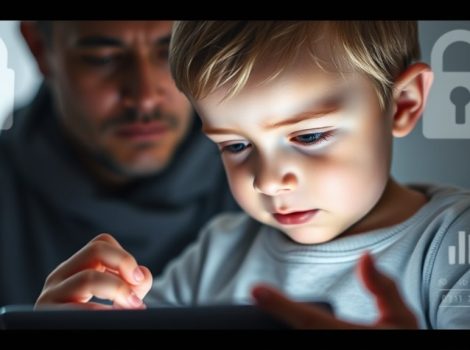The Role of Empathy in Effective Parenting Communication
When you think about the conversations you have with your child, how often do you consider the role of empathy in those exchanges? It’s easy to focus on delivering messages or correcting behavior, but genuine understanding can transform your communication. By tuning into your child’s feelings and perspectives, you foster a connection that encourages openness and trust. This approach not only nurtures their emotional development but also strengthens your relationship. So, what specific techniques can you use to cultivate this empathetic communication?
Understanding Empathy in Parenting
Empathy is an essential component of effective parenting, allowing you to connect with your child’s feelings and experiences. When you practice empathy, you’re really trying to see the world through your child’s eyes. It means understanding their emotions, even when they mightn’t be able to explain them clearly.
Imagine your child comes home upset after a tough day at school. Instead of brushing it off, you take a moment to listen and show you care. This can make all the difference!
You might find yourself saying things like, “I can see you’re feeling sad about what happened today,” or “It’s okay to feel frustrated.” These simple phrases show you’re tuned in to their feelings, and it helps them feel heard.
Plus, it’s a great way to build trust. It’s like you’re saying, “I get it, and I’m here for you.”
Benefits of Empathetic Communication
The power of empathetic communication in parenting can transform your relationship with your child. When you truly listen to their feelings, you show them they matter. This simple act can make a world of difference in how they see you and themselves. It builds trust and connection, making your child feel safe and understood.
Imagine your child sharing a tough day at school. If you respond with empathy, they’ll be more likely to open up, knowing you care. This open communication helps you understand their needs better, giving you the tools to guide them through challenges.
Additionally, empathetic communication encourages emotional intelligence. By modeling this behavior, you teach your child how to express their feelings and respond to others with kindness. It’s like giving them a superpower for life!
Plus, when you practice empathy, it creates a peaceful home environment. Less arguing and more understanding means everyone can relax and enjoy each other’s company.
Techniques for Practicing Empathy
Practicing empathy in your daily interactions with your child can strengthen your connection even further. One great technique is active listening. When your child talks, put down your phone, make eye contact, and show you’re really interested. Nod and respond with little phrases like, “I see,” or, “That sounds tough.” This shows you care and helps them feel heard.
Another technique is to mirror their feelings. If your child is upset because they lost a toy, you might say, “I can see you’re really sad about that.” This simple acknowledgment can make a world of difference.
You can also ask open-ended questions. Instead of just asking yes or no questions, try, “What do you think about that?” This gets them talking and shows you want to understand their perspective.
Finally, share your own feelings too. Saying something like, “I feel frustrated when I can’t find my keys,” helps them see that everyone has emotions.
Empathy and Conflict Resolution
While conflicts are a natural part of any relationship, understanding your child’s feelings can greatly ease tensions and lead to resolution. When disagreements arise, take a moment to pause and consider their perspective. You might think they’re being stubborn, but they could just be worried or confused. By showing empathy, you create a space where they feel heard and valued.
Try asking open-ended questions like, “What’s bothering you?” or “Can you tell me how you feel?” This invites your child to express themselves without fear of judgment. When they see you genuinely trying to understand, they’ll likely calm down and open up. Remember, it’s not about winning the argument; it’s about finding common ground.
As you navigate through the conflict, keep your tone light and your body language relaxed. A little humor can go a long way to lighten the mood. Maybe a silly face or a funny voice can break the tension.
Ultimately, by embracing empathy, you’ll not only resolve the immediate issue but also teach your child valuable lessons about communication and understanding. After all, who wouldn’t want to feel understood, even when things get a little heated?
Building Stronger Parent-Child Relationships
Building a strong parent-child relationship requires both time and effort, but the rewards are immeasurable. When you invest in your relationship, you create a bond that lasts a lifetime. Start by spending quality time together—whether it’s playing games, cooking, or just talking about your day. These moments can be simple but help build trust and understanding.
Show your child that you care by actively listening. When they share their feelings, don’t just nod along; really pay attention! This builds empathy and makes them feel valued. And hey, it’s okay to share your own feelings too—after all, you’re human!
Don’t forget to keep the communication light sometimes. Crack a joke or share a funny story. Laughter can turn even the toughest days into something special. Plus, it makes you more relatable!
Celebrate their achievements, no matter how small they may seem. A simple “I’m proud of you” can go a long way.




